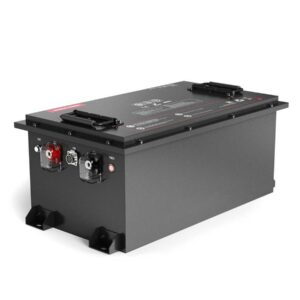
Are zinc chloride batteries hazardous?
Zinc chloride batteries are generally non-hazardous under normal use but pose risks if damaged or improperly disposed. They contain zinc and manganese dioxide—materials less toxic than lead or cadmium—but leakage of acidic electrolytes can corrode devices. Proper disposal via certified recycling programs mitigates environmental harm. Their low cost and stability make them common in low-drain devices like remote controls.
How to Safely Dispose of and Recycle Car Batteries
What chemicals make zinc chloride batteries potentially hazardous?
Zinc chloride batteries use zinc anodes, manganese dioxide cathodes, and a zinc chloride electrolyte. While not classified as hazardous waste universally, electrolyte leakage releases acidic compounds (pH ~4) that damage electronics. Pro Tip: Store batteries in airtight containers if corrosion is a concern—moisture accelerates chemical degradation.

Beyond basic chemistry, the electrolyte’s acidity (pH 3.5–4.5) can corrode metal contacts in devices. For example, a leaked AA zinc chloride battery in a flashlight might permanently fuse the spring terminal. Technically, these batteries operate at 1.5V nominal but drop to 0.9V when depleted. Why does this matter? Undervoltage risks electrolyte crystallization, increasing leakage likelihood. Manufacturers often add inhibitors like starch to slow electrolyte reactions, but heat above 45°C neutralizes these safeguards. Always check for bloating before use.
| Component | Risk Level | Disposal Method |
|---|---|---|
| Zinc Anode | Low | Recyclable |
| Manganese Dioxide | Moderate | Landfill (sealed) |
| Electrolyte | High (corrosive) | Neutralize before disposal |
How do zinc chloride batteries compare to alkaline in toxicity?
Zinc chloride batteries have lower energy density but reduced leakage risks compared to alkaline. Their electrolyte is less caustic (pH 4 vs. alkaline’s pH 12), making spills easier to clean. Pro Tip: Use zinc chloride for low-drain devices to minimize failure points.
Practically speaking, alkaline batteries use potassium hydroxide—a strong base causing severe skin burns. Zinc chloride’s milder acid still requires gloves during cleanup. For instance, a leaking alkaline AA in a child’s toy may require discarding the entire device due to corrosion, whereas zinc chloride leaks might only need contact scrubbing. Energy-wise, alkaline delivers 2,900 mAh vs. zinc chloride’s 1,500 mAh in AA format. But what if cost matters? Zinc chloride packs cost 30% less, ideal for budget-conscious users. However, they’re unsuitable for high-drain gadgets like digital cameras.
| Parameter | Zinc Chloride | Alkaline |
|---|---|---|
| Electrolyte pH | 4 | 12 |
| Energy Density | Low | High |
| Leakage Risk | Moderate | High |
Are zinc chloride batteries safe for household use?
Yes, when undamaged and used in low-moisture environments. Their sealed construction prevents electrolyte exposure unless physically breached. Pro Tip: Avoid mixing old and new batteries—voltage imbalances increase leakage chances.
Beyond storage basics, zinc chloride batteries excel in devices like wall clocks or TV remotes with steady, low-current draws. For example, a 9V zinc chloride battery in a smoke detector lasts ~1 year versus 3 years for lithium. Why accept shorter life? Cost savings. However, never install them in medical devices—voltage drops could be life-threatening. Always inspect for rust or swelling every 3 months. Did you know? Zinc chloride cells account for 65% of single-use batteries in developing nations due to affordability.
Can zinc chloride batteries be recycled safely?
Yes, through certified e-waste programs that neutralize electrolytes. The zinc and manganese components are reclaimed for steel production. Pro Tip: Tape terminals before disposal to prevent residual current fires.
Recycling efficiency varies: Europe recovers 45% of zinc from these batteries, while the U.S. manages just 15%. For context, recycling 1,000 kg of zinc chloride batteries yields 300 kg of reusable zinc. But why isn’t this mainstream? Collection infrastructure gaps persist. Some municipalities partner with retailers like Best Buy for drop-offs. A real-world success: Belgium’s Bebat program recycles 70% of all portable batteries through 24,000 collection points.
What health risks arise from damaged zinc chloride batteries?
Exposure to leaked electrolyte may cause skin irritation or respiratory issues if inhaled. Swallowing battery fragments risks intestinal blockage. Pro Tip: Ventilate areas after cleaning leaks—evaporated electrolytes irritate lungs.
In severe cases, electrolyte contact with eyes requires 15 minutes of flushing and immediate medical care. A 2021 study found 12% of pediatric battery ingestion cases involved zinc chloride types. Why are kids at risk? Bright-colored button cells attract toddlers. Always secure battery compartments with screws in child-accessible devices. For cleanup, use vinegar (dilute acetic acid) to neutralize residues—wipe with a 50/50 water-alcohol mix afterward.
How do zinc chloride batteries impact the environment versus lithium?
Zinc chloride batteries have lower toxicity but higher landfill volume than lithium. While lithium-ion cells offer rechargeability, mining cobalt raises ethical concerns. Pro Tip: Choose lithium for high-use devices to reduce waste long-term.
Zinc is naturally abundant, but mining it contributes to soil acidification. Conversely, lithium extraction uses 500,000 gallons of water per ton of ore. For example, a zinc chloride AA battery’s carbon footprint is 0.6 kg CO2 vs. 3.2 kg for lithium-ion. But which is greener? It’s situational—zinc chloride suits infrequent-use devices, while lithium excels in smartphones. California’s DTSC exempts zinc chloride from hazardous waste rules, unlike nickel-cadmium.
Battery Expert Insight
Zinc chloride batteries strike a balance between safety and affordability. While not entirely hazard-free, their risks are manageable through proper handling and recycling. Modern designs include pressure vents to reduce rupture risks, making them viable for emergency kits and low-power applications where reliability trumps performance.
FAQs
Are zinc chloride batteries safe for children’s toys?
Yes, if compartments are secured. Use screw-locked battery covers—leaked electrolyte can harm curious toddlers.
Can zinc chloride batteries explode?
Rarely. Overheating from short circuits may cause rupture, but vents in modern cells prevent explosions.
Do zinc chloride batteries expire?
Yes—shelf life is 3–5 years. Store in cool, dry places to maximize lifespan.
